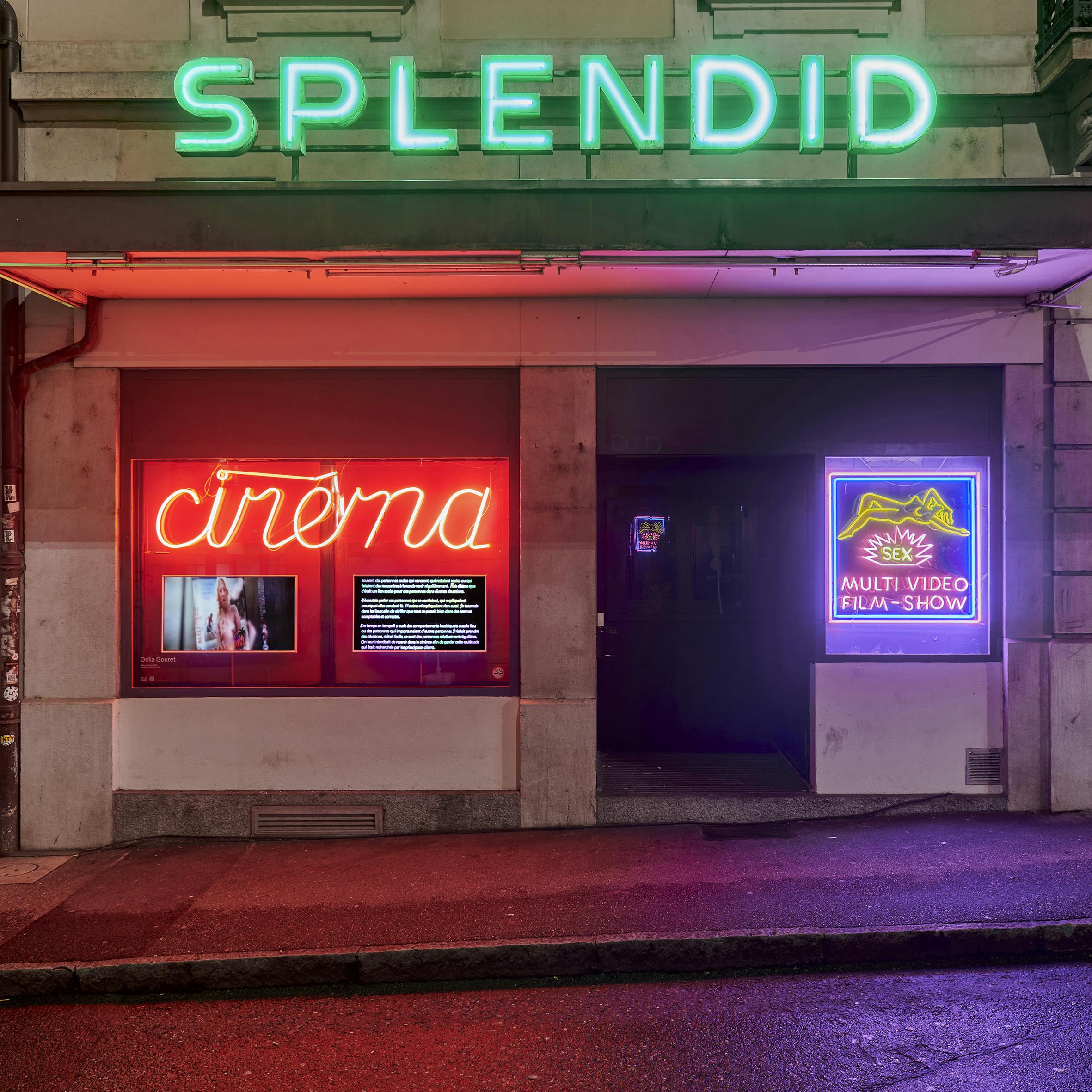
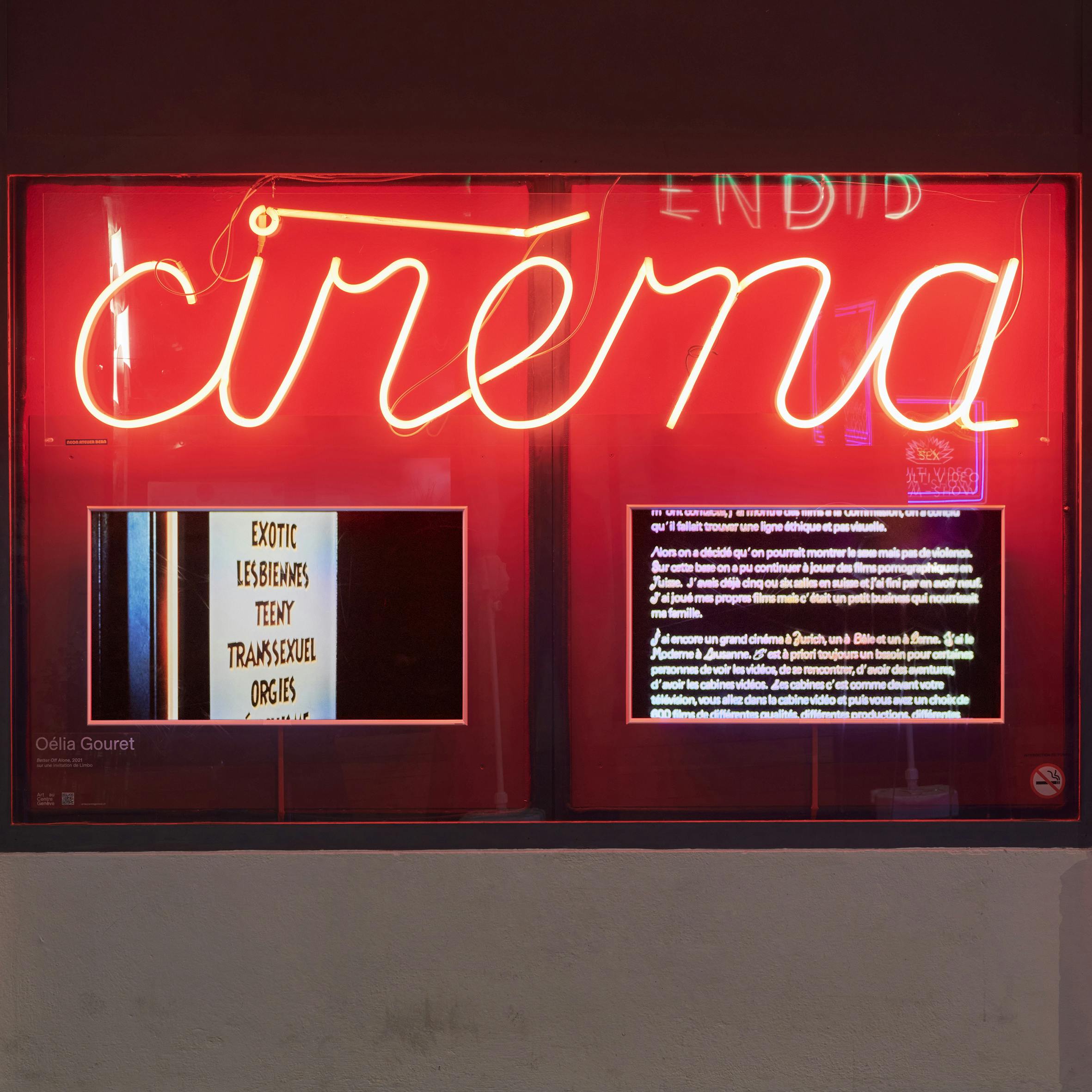
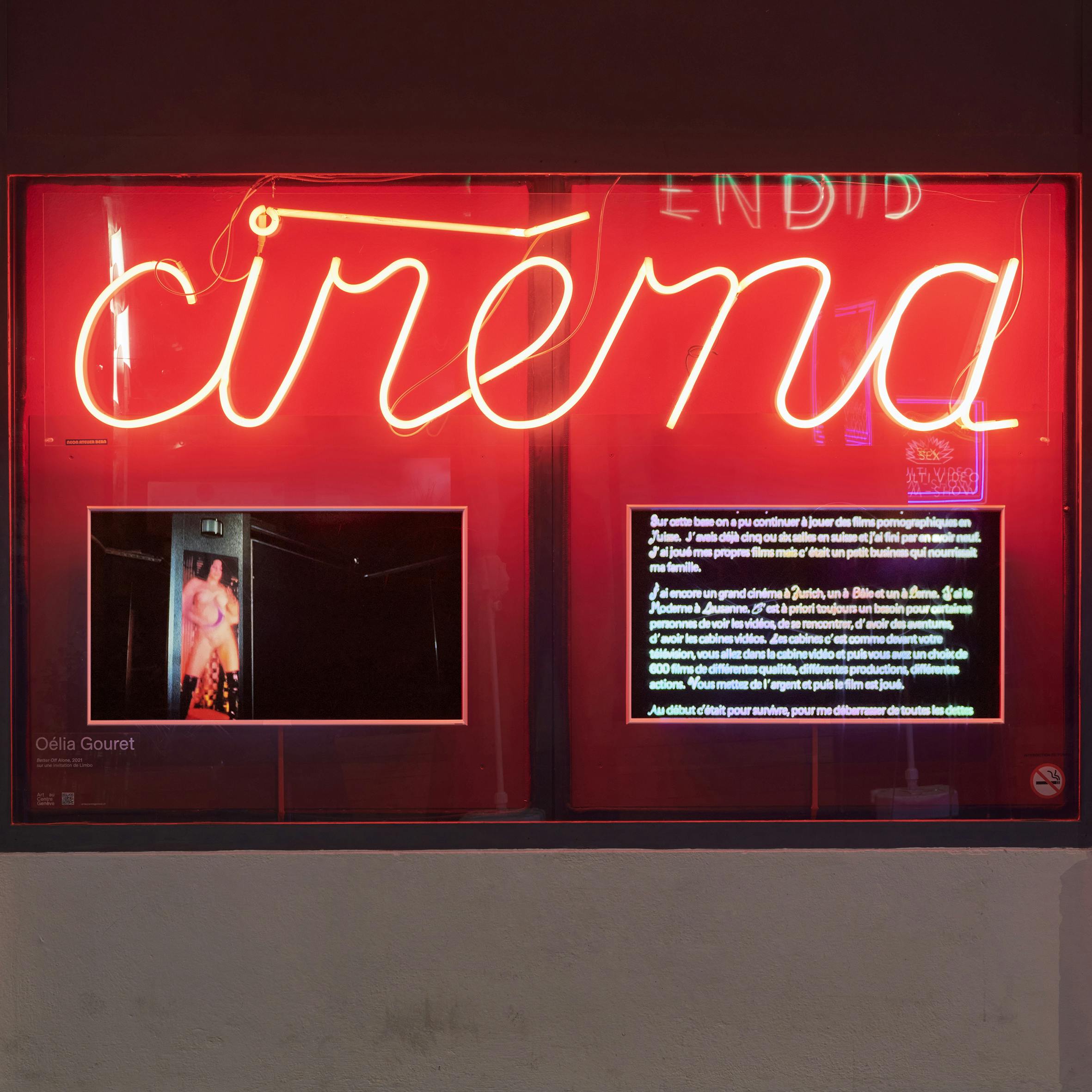
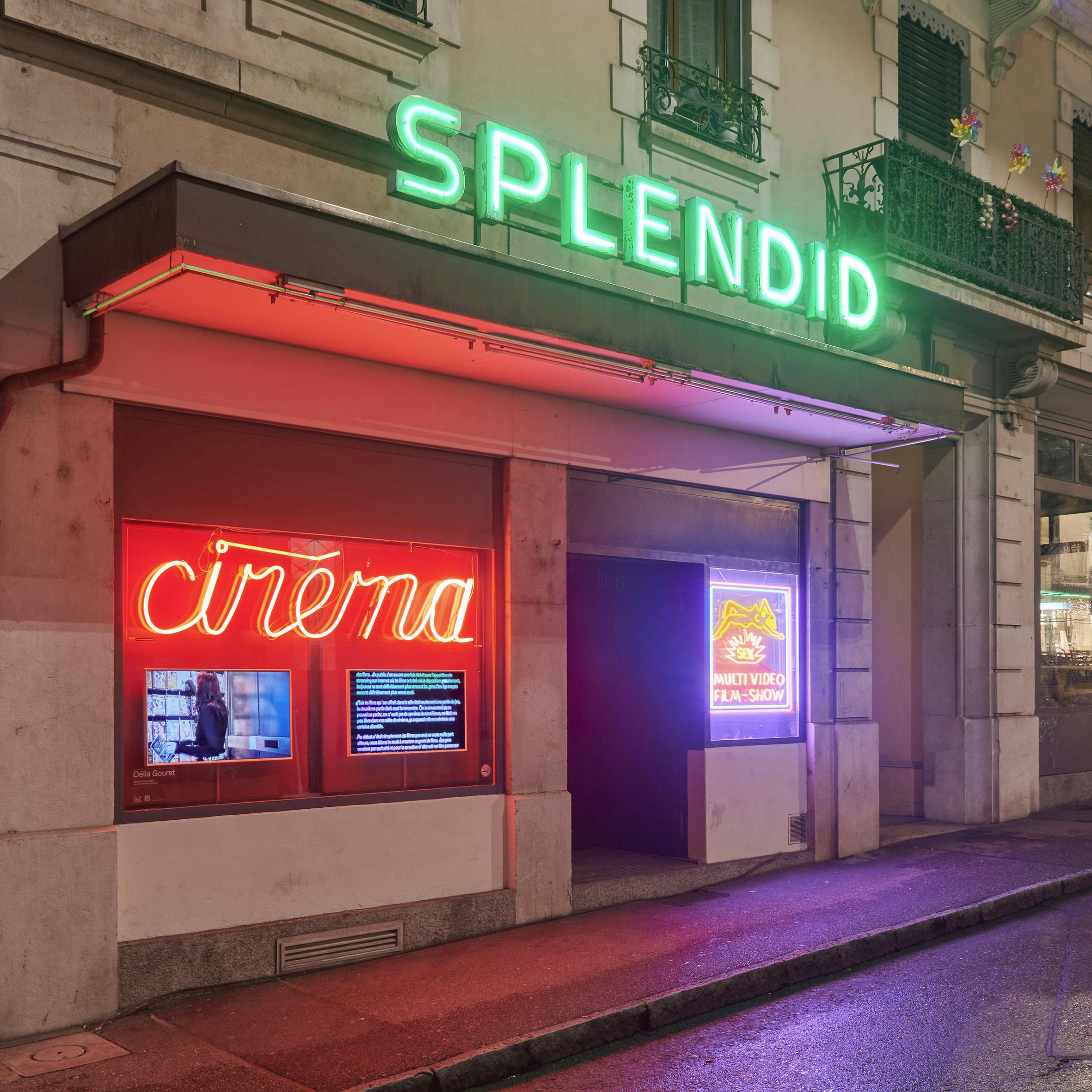
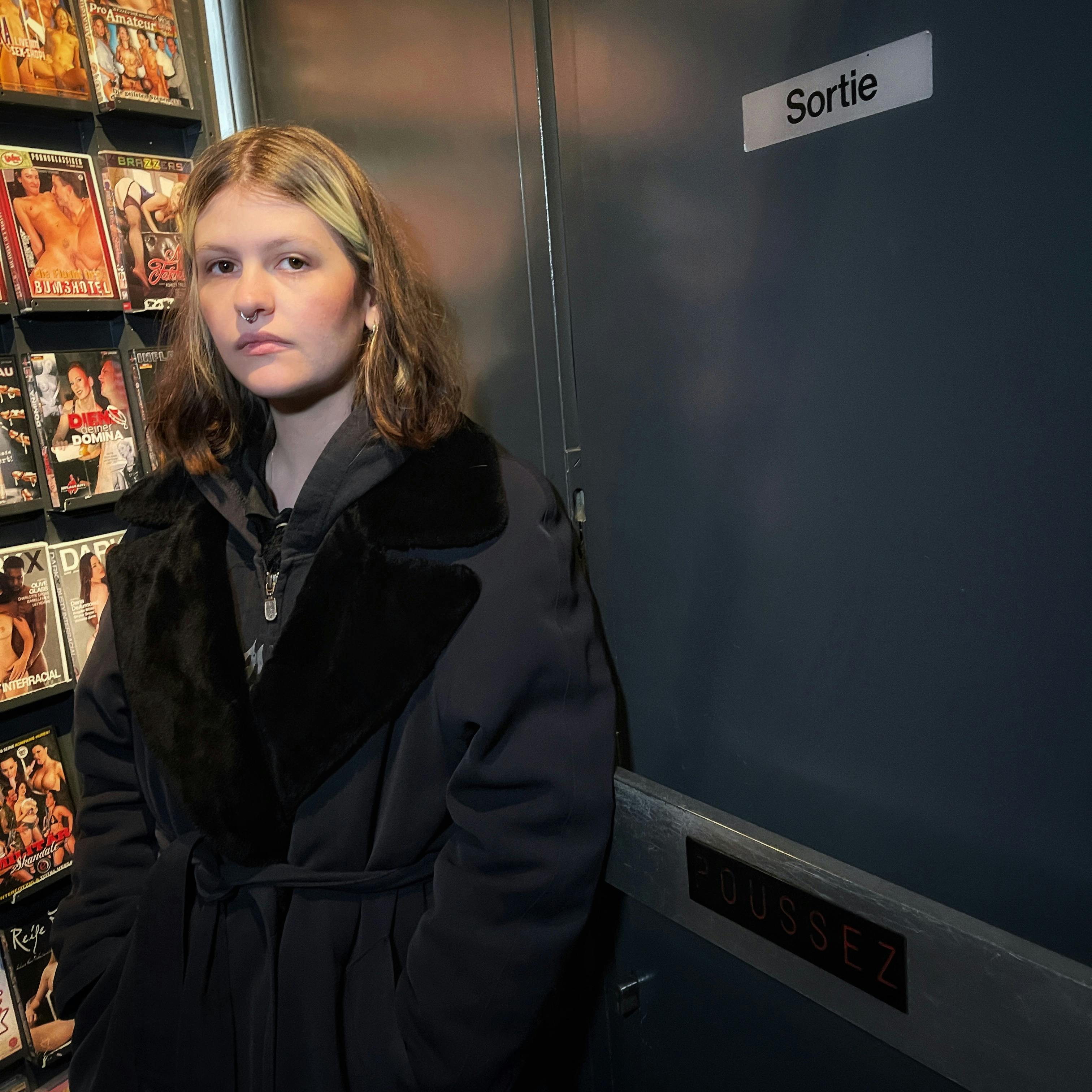
Better Off Alone, 2021
Oélia Gouret creates situations. Like platforms or stages – ones that are conquered, taken over, or invaded – her friends and loved ones are invited there to play themselves. None of the interactions are really organized. It’s as if, by refusing any idea of mediation, the artist busies herself with accompanying the protagonists – and not the spectators – with a camera as her sole witness. Setting up these platforms, taking the time to document what will take place, and broadcasting the traces – these are the only services the artist will offer. The visual productions that emerge from these collective spaces of self-representation are not designed to maintain or educate an unconcerned public but, instead, assert a refusal to serve without first choosing whom, and express the artist’s position that allegiance and work are directed and measured without requiring justification. They do not look for the public’s acceptance or understanding but, instead, expose the practice of a type of care that is transformative and inherently offensive.
Pablo Rezzonico Bongcam
Full text / @aiko_elia
Oélia Gouret was born in 1996 in Nantes, France, and lives and works between Geneva and Paris. Graduating with a Bachelor of Visual Arts in Information/Fiction from HEAD in 2020, she is currently studying at HEAD’s Work.Master programme. She co-creates videos, texts, performances, and fanzines, while also participating in workshops and art collectives that generate moments of celebration. She hopes to get audiences to reflect on how communities, groups of people and political struggles organise, represent themselves and are represented in art.
She is interested in the hybridity of film genres and mediums, the porosity between what is real and virtual, or between art and political activism. The documentary interview is a common component of most of her work, since it creates an archive of multiple viewpoints on a single subject. In essence, it lends others a voice – but also gives oneself a voice. Placing these spoken words back into a genealogy, and obtaining a community’s point of view that eventually transforms into a first-hand account.
©Isabelle Meister (portrait)
©Thomas Maisonnasse
Showcase provided by the Edouard Stöckli
Oélia Gouret
la voyageuse furtive